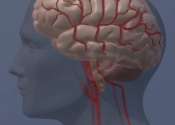Imaging shows brain matter alterations in US government personnel who served in Cuba
Brain imaging of 40 U.S. government personnel who experienced a host of neurological symptoms after possible exposure of an unknown source while serving in Cuba revealed significant differences in brain tissue and connectivity ...
Jul 23, 2019
0
989






